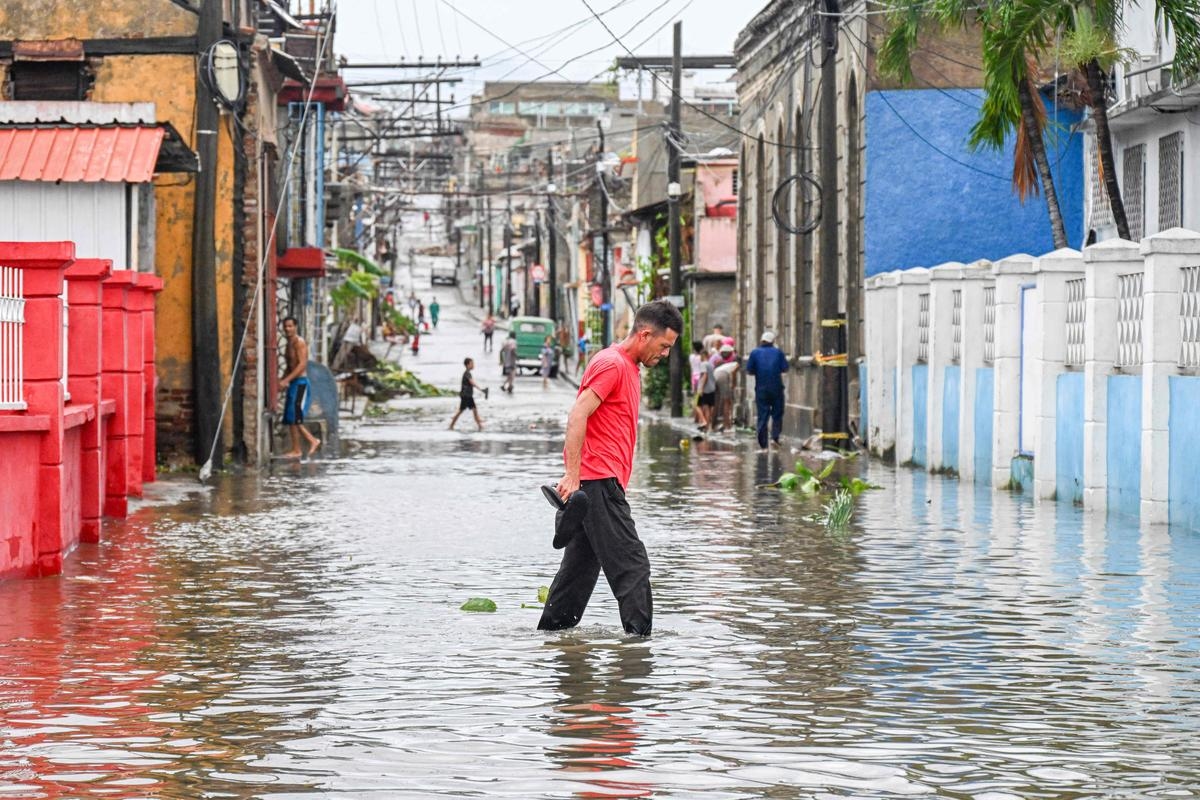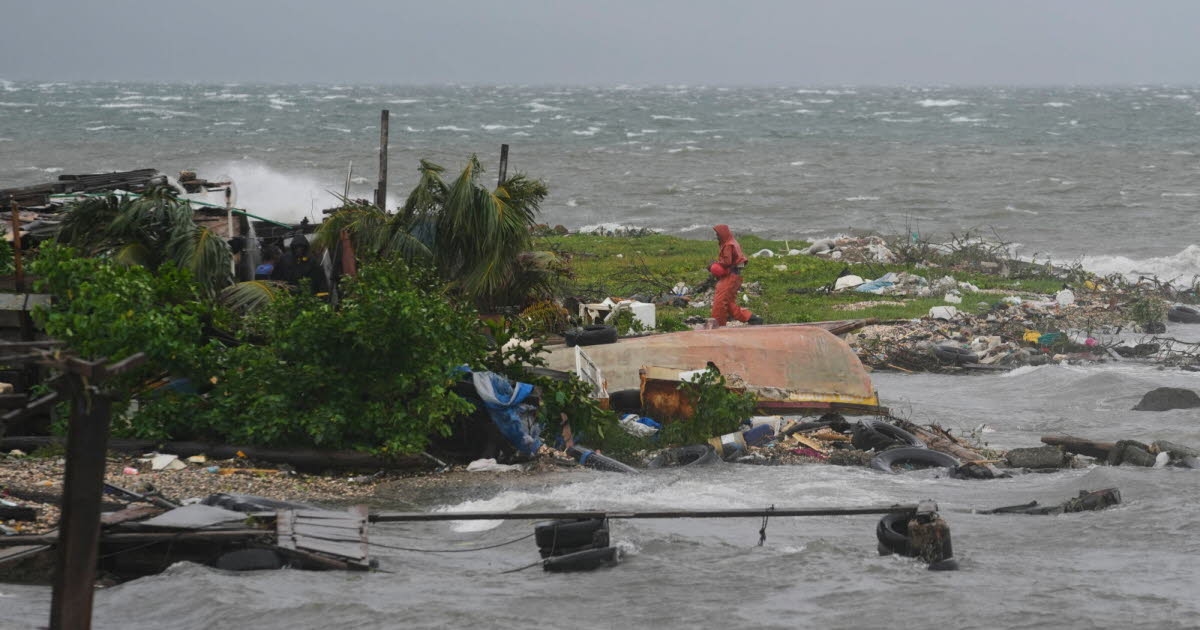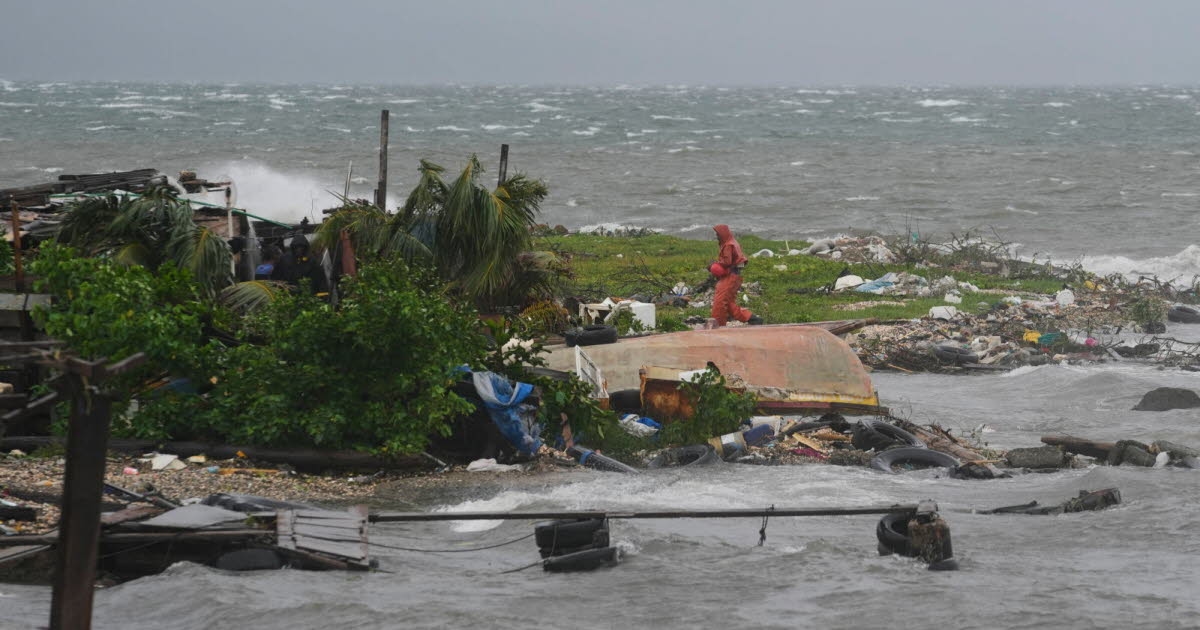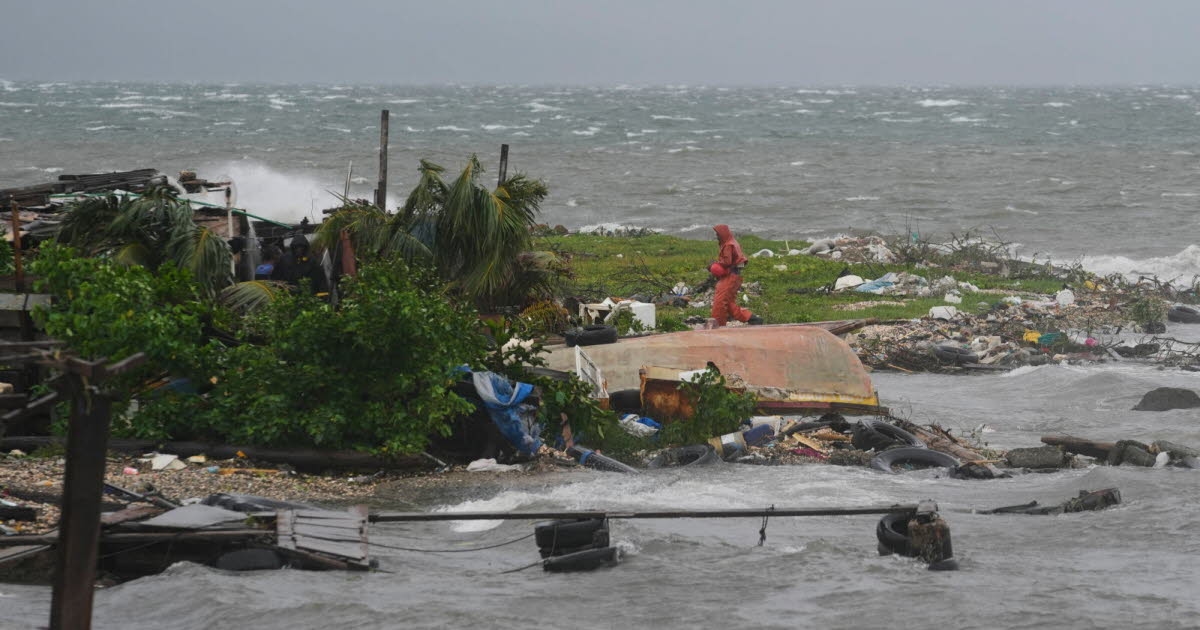Hurricane Melissa: The storm has left Cuba and is heading towards the Bahamas; at least 20 dead in Haiti

Nearby rivers burst their banks, and in some places the water was waist-deep. Drowned sheep lay on the asphalt. The roof of the house belonging to Mariela Reyes, a 55-year-old homemaker, was torn off and crashed down onto the adjacent street. "It's not easy to lose everything you have. The little you own," said a disheartened Mariela Reyes. On Tuesday, she had moved her television and other appliances to her sister's house for safekeeping. Melissa is now located off the east coast of Cuba, carrying winds of 155 km/h, but torrential rains continue to pound the island, according to the National Hurricane Center (NHC). Melissa has moved toward the Bahamas, where a dangerous storm is expected as early as today, according to the NHC, and will then head toward Bermuda, which it is expected to reach Thursday evening, with a slight strengthening possible. In the Bahamas, "residents must take shelter," warns the NHC, and in Bermuda, "preparations must be completed before the first expected occurrence of tropical storm winds."
Cuban President Miguel Diaz-Canel stated that the hurricane had caused "considerable damage" but has not yet reported any casualties. In Haiti, not directly hit by the eye of the hurricane but severely affected by heavy rains, at least 20 people, including 10 children, have died and 10 are missing, according to the Director General of Civil Protection, Emmanuel Pierre. Flooding of the La Digue River swept away several houses in the coastal town of Petit-Goâve, according to residents. "People were killed, houses were swept away by the waters," one of them, Steeve Louissaint, told AFP. Three people died in Panama, three in Jamaica, and one in the Dominican Republic. Hurricane Melissa was the most powerful to make landfall in 90 years when it struck Jamaica on Tuesday as a Category 5 hurricane, the highest on the Saffir-Simpson scale, with sustained winds of approximately 300 km/h.
"We will rebuild, we will rise again."“There has been immense, unprecedented destruction of infrastructure, property, roads, communication and energy networks,” said Dennis Zulu, the UN coordinator for several Caribbean countries, including Jamaica, speaking via video link from Kingston. “People are in shelters across the country and at the moment, our preliminary assessments show that the country has been devastated on a scale never seen before,” he added, citing an initial estimate of one million people affected.
“Stay strong. We will rebuild, we will rise again,” Jamaican Prime Minister Andrew Holness wrote on X. In Seaford Town, high inland in western Jamaica, all that remains of Christopher Hacker’s restaurant is a handful of wooden structures, the walls and roof gone, with a few rickety sheets of corrugated iron hanging from them. “Everything is gone,” he told AFP in written messages, along with photos. Dana Morris Dixon, Minister of Education, Skills, Youth and Information, indicated that “the damage is significant in western Jamaica,” but emphasized that the capital, Kingston, “has not been severely damaged.”
According to Desmond McKenzie, Minister of Local Government, much of the infrastructure in Montego Bay (west) was "severely damaged," where a hospital "was devastated," he said, "for lack of a better word." More than 25,000 people are in shelters because "many homes were destroyed," he said. "The road ahead will not be easy. Given the extent of the damage, it will take a long time." The minister also noted that "amidst all of this, a baby was safely delivered in emergency circumstances. So there is… a baby Melissa."
International solidarity is being organizedThe United States has "sent relief and response teams to the affected areas, along with vital supplies," US Secretary of State Marco Rubio told X. The United Kingdom will provide £2.5 million (€2.8 million) in emergency financial aid to the affected countries, the Foreign Office announced Wednesday. In a message posted on social media, King Charles III, who said he was "deeply saddened by the catastrophic damage," stated that "this unprecedented storm, the most terrible ever recorded, reminds us of the ever-increasing urgency of restoring the balance and harmony of nature."
SudOuest





